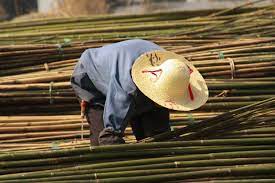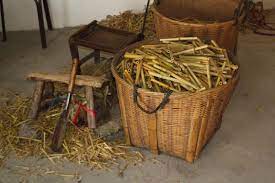How profitable is Bamboo Farming Now?



Bamboos does not have a hundred uses: Studies done by IDC (Industrial Development Corporation) and other role players show over a “thousand”. Clearly there is a lot more to bamboo products and bamboo processing than than would immediately occur to the reader. Not only does bamboos have many uses, it is a non- invasive crop that can help develop agriculture and contribute towards lifting human beings out of poverty by creating jobs in rural areas.
Bamboo – the highly versatile giant grass that can grow in almost any kind of climate and thrive in the poorest of soils – has been in existence for hundreds of years in Asia, Latin America and parts of Africa. Yet, for a long time the potential of this fastest- growing plant on earth, with recorded growth rates of up to one metre per day for some species, remained largely unexploited.
Bamboo – is used to make a long list of high-value products. In fact, according to the United Nations Environment Program (UNEP), the plant has over 2000 different uses. China reckons there are nearly 10 000 uses and can fetch even more money if processed.
“Commercially” Bamboo is used for furniture and a variety of building and roofing materials, from fencing poles to veneer, floor tiles, panels for walls and ceilings, scaffolding material, door and window frames and window blinders.
In the “paper & pulp industry”, Bamboo can be made into newsprint, toilet paper and cardboard. The textile, food and chemical industries convert bamboo into fabrics, T-Shirts, wine, vinegar, biochemicals and pharmaceuticals. Domestically bamboo is used to make mats, baskets, canoes, fishing kits, bicycles, fences, toothpicks, school desks, pencils and rulers, to name just a few products.
Bamboo is also a source of “bio-energy”. As the population in Africa increases, the massive harvesting off firewood and charcoal will be unsustainable and bamboo provides a clean and renewable energy alternative in the form of charcoal briquettes and wood for domestic and industrial use.
Bamboo Benefits
1. Can be planted as noise barriers and windbreaks.
2. Provides a habitat for wildlife and improved biodiversity.
3. Contributes to economic development and creation of jobs at a local level.
4. Can be a grower as a living fence to keep animals in or out.
5. Provides shade and creates windbreaks for food crop.
6. Creates opportunities for communities to enter the “New Green Economy” and so creates rural wealth instead of the standard poverty relief programs.
If you need help in setting up a successful and profitable bamboo farming operation or need more information contact us now at: 084 583 3143 or money@global.co.za
How profitable is Bamboo Farming Now? Read More »

